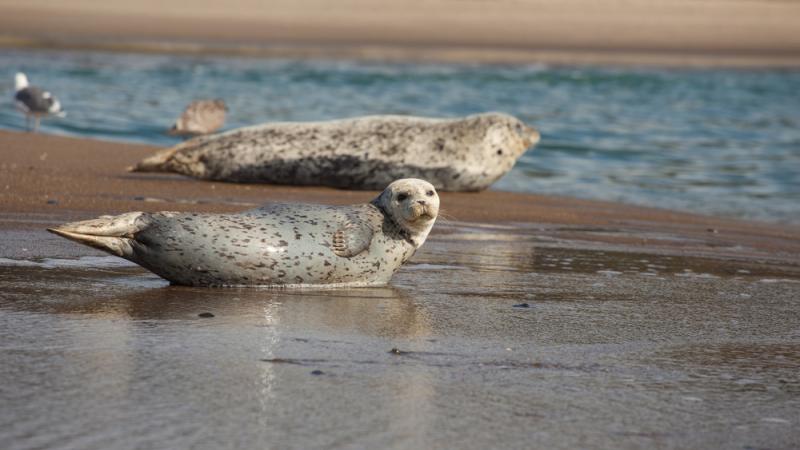Plastic pollution

Reducing plastic pollution
The rapid rise of plastic production has created a global plastic waste crisis. Plastic pollution is a growing threat to the health of marine and land-based wildlife, ecosystems and humans. A reduction in plastic production will only be achievable through the combined efforts of consumers, businesses and governments.
The Oregon Zoo believes that reducing the sources of plastic pollution will protect the health of wildlife, people and the ecosystems we depend on.
- Plastic poses a threat to the majority of sea turtle, marine mammal, and seabird species, whether by ingestion or entanglement.
- Plastic microtrash threatens California condors. Microtrash can prevent chicks from digesting food, resulting in starvation and death.
- Nearly 9 million tons of plastic enters the ocean each year (two million pounds per hour), and this amount is expected to double by 2025. This is the equivalent of five bags filled with plastic sitting on every foot of coastline in the world.
- A growing body of research shows how microplastics and associated toxins can travel through the ocean food web, ending up in seafood for human consumption.
- Americans generate an average of 220 pounds of plastic waste per person each year.
- In 2018, more than 10,000 tons of Oregon's recycling was dumped into landfills, in part due to contamination from non-recyclable plastics. Oregonians are taking steps to reduce single-use plastics.
- Thanks to community action, single-use plastic bags are banned statewide, and Oregon food service retailers must ask customers if they want a straw.
- As consumers become more aware of the problem, they can increase demand for alternatives to single-use plastic, such as reusable packaging, containers and utensils. In turn, they can help drive business innovation in new product design and materials.
- In 2018, the Oregon Zoo eliminated all single-use plastic water bottles and straws as the first step of a plastics reduction plan.
How to help reduce plastic pollution
- At stores: Consider skipping produce bags altogether. Avoid choosing or purchasing plastic packaging whenever possible. Give preference to glass, metal, and paper.
- At restaurants: Select restaurants that use washable plates, cups, and utensils. Ask stores and restaurants to switch to "upon request" policies and to find alternatives, and recognize them when they do. Bring a reusable container for your leftovers.
- At home: Recycling the right way helps keep habitats healthy and prevent contamination at recycling centers. Find out which plastics are recyclable in the Portland region at recycleornot.org.
- At work: Encourage your place of business to switch to reusables for meetings. Bring your own reusable coffee mug and utensils to work. Create a party pack of reusable silverware and plates for offsite meetings. Ask conference hosts to collect nametag lanyards for reuse.
- Outdoors: Practice "Leave no Trace" camping and outdoor recreation. Pack out any trash (plastic and otherwise) you bring into a natural area.
- Community-level actions: Support local, state and national efforts to reduce plastic pollution, such as bans on single-use plastics. Support the expansion of Oregon's bottle bill to include more beverages sold in plastic packages. Ask leaders to require that all bottles and bags be made with a certain amount of post-consumer recycled plastic to help keep recycling moving forward.

